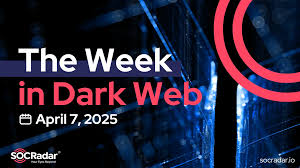The dark web has long been a hidden corner of the internet, a place where anonymity reigns and illicit trade thrives. Among the most notorious aspects of this shadowy network are private credit card (CC) markets. These markets vclubshop are exclusive online shops where stolen financial information, including credit card data, is bought and sold. Understanding trends in these private CC markets is essential for cybersecurity professionals, financial institutions, and individuals seeking to protect themselves in an increasingly digital world. This blog explores the dynamics, trends, risks, and implications of private credit card markets on the dark web.
What Are Private CC Markets?
Private CC markets are specialized online platforms operating primarily on the dark web. Unlike public dark web marketplaces, these shops are often invitation-only, requiring approval or membership fees to access. This exclusivity helps maintain secrecy and reduces the risk of infiltration by law enforcement or competitors.
These markets specialize in trading stolen credit card data, personal identification details, and other sensitive financial information. The “private” aspect refers to the restricted access, heightened security measures, and use of encrypted communications. Many of these platforms resemble legitimate e-commerce sites, featuring product listings, categories, pricing, and even customer reviews.
How Private CC Markets Operate
Private CC markets have become sophisticated over the years, employing various techniques to ensure anonymity and transaction security. Key operational features include:
1. Encrypted Networks
These markets typically operate on Tor or I2P, which anonymize both server locations and user activity. This makes tracking and shutting down such platforms challenging for authorities.
2. Cryptocurrency Transactions
Payments are conducted exclusively in cryptocurrencies such as Bitcoin or Monero. These pseudonymous transactions make financial tracing difficult while facilitating global trade.
3. User Verification
Many private CC markets require proof of legitimacy before granting access. Prospective buyers may need invitations, references, or even prior experience in the underground economy.
4. Listings and Data Details
Sellers post detailed listings of available credit cards, including card type, issuing country, balance, and sometimes associated personal information. Premium or verified cards are sold at higher prices due to their potential for profitable use.
5. Escrow and Ratings
To build trust, many markets employ escrow systems where funds are released only after buyers confirm the validity of purchased data. Additionally, rating systems for sellers and feedback mechanisms resemble those found in legitimate marketplaces.
Trends in Private CC Markets
Several trends have emerged in private CC markets in recent years, reflecting the evolution of cybercrime and the vclubshop login increasing sophistication of these underground economies:
1. Increased Specialization
Many markets now categorize data based on region, card type, or balance. This allows buyers to target specific types of information for fraud or resale, making markets more structured and organized.
2. Subscription-Based Services
Some private markets now offer subscription models where buyers pay recurring fees for continuous access to fresh data. This trend reflects the growing commercialization and professionalization of cybercrime.
3. Enhanced Security Measures
To avoid law enforcement detection, these platforms are increasingly adopting multi-layered encryption, two-factor authentication, and advanced access restrictions.
4. Shift Toward Cryptocurrency Privacy
Privacy-focused cryptocurrencies, like Monero, have become more prevalent as law enforcement agencies improve blockchain tracking of Bitcoin transactions. Monero’s built-in anonymity features make it ideal for criminal use.
5. Integration with Fraud Services
Some markets now bundle credit card data with additional services, such as preloaded accounts, automated fraud tools, or guidance on exploiting the purchased data. This integration reflects the industrialization of cybercrime.
Risks of Private CC Markets
While private CC markets may appear lucrative to cybercriminals, they carry significant risks.
1. Legal Consequences
Engaging in buying or selling stolen credit card data is illegal worldwide. Participants risk arrest, prosecution, and significant penalties.
2. Scams and Fraud
Despite security measures like escrow, scams are common. Buyers may pay for data that is invalid, expired, or already used.
3. Exposure to Malware
Dark web platforms often contain malware or tracking scripts. Accessing these markets can compromise devices and personal information.
4. Traceability
Advanced digital forensics, blockchain analysis, and undercover operations are increasingly successful at tracking participants, even in private markets.
5. Ethical and Social Implications
Participation in private CC markets fuels financial crime, identity theft, and economic disruption. This contributes to a larger cycle of criminal activity that impacts individuals and businesses alike.
Impact on Individuals and Businesses
The existence of private CC markets has far-reaching implications:
- Individuals: Personal credit card information can be stolen and misused, resulting in fraudulent transactions, identity theft, and long-term financial damage. Victims often spend months or years resolving these issues.
- Businesses: Companies whose data ends up in these markets face reputational damage, customer distrust, and potential regulatory penalties. Data breaches can also result in financial losses, litigation, and operational disruption.
- Financial Institutions: Banks and payment processors must invest heavily in fraud detection and prevention systems to mitigate losses from stolen data.
How to Protect Against Private CC Market Risks
While private CC markets operate in secret, individuals and organizations can take proactive steps to reduce exposure:
- Regular Monitoring of Financial Accounts: Detect unauthorized activity quickly.
- Strong, Unique Passwords: Avoid password reuse and consider using password managers.
- Two-Factor Authentication: Adds an extra layer of account security.
- Educate on Phishing: Be vigilant against emails or messages requesting sensitive information.
- Cybersecurity Measures: Keep devices updated, use antivirus software, and encrypt sensitive data.
Businesses should go further by implementing employee training, performing regular security audits, and developing incident response plans to handle potential breaches.
Conclusion
“Dark Web Finds: Exploring Private CC Market Trends” sheds light on a hidden and complex segment of the internet. Private credit card markets are sophisticated platforms where stolen financial data is bought and sold, reflecting both the evolution of cybercrime and the challenges faced by law enforcement and cybersecurity professionals.
While these markets offer potential rewards to criminals, they carry significant risks, including legal consequences, scams, and exposure to malware. The reality is that these platforms contribute to a cycle of identity theft, financial fraud, and economic disruption that affects individuals, businesses, and institutions worldwide.
Understanding the trends and operations of private CC markets allows us to better protect ourselves and our organizations. Awareness, proactive security, and vigilance remain the most effective defenses against the hidden threats of the dark web.
By staying informed and implementing strong security practices, individuals and businesses can reduce the risks posed by private CC markets, ensuring that the shadowy world of stolen credit card data has minimal impact on our daily lives.

